Train Street Coffee - a famous check-in spot in Hanoi city, is currently experiencing a situation where the police and militia are absent, but it is immediately bustling with tourists.
In recent days, there has been an unfortunate situation where, although only one street apart, Tran Phu, one side is deserted, while the other side is bustling with visitors. The reason is that on the section from Tran Phu to Phung Hung (Hoan Kiem District), checkpoints have been set up and security forces have been deployed. So tourists have crossed to the street in Ba Dinh District. Immediately after that, Dien Bien Ward Police (Ba Dinh District) fined 4 violators.
It is known that the railway coffee business model appeared from around 2017 - 2018. In Hoan Kiem district, there are about 30 railway coffee shops. The railway coffee street in Ba Dinh district has 15/19 houses with residents living there with a total of 16 households (53 people living). Most of the railway residents have been in this area for more than 80 years.
All are violating railway safety corridor.
In August 2022, the railway industry requested the Hanoi People's Committee to coordinate in handling the situation of tourists freely walking on the railway tracks to take photos and videos; and people selling coffee and refreshments at the railway coffee street.
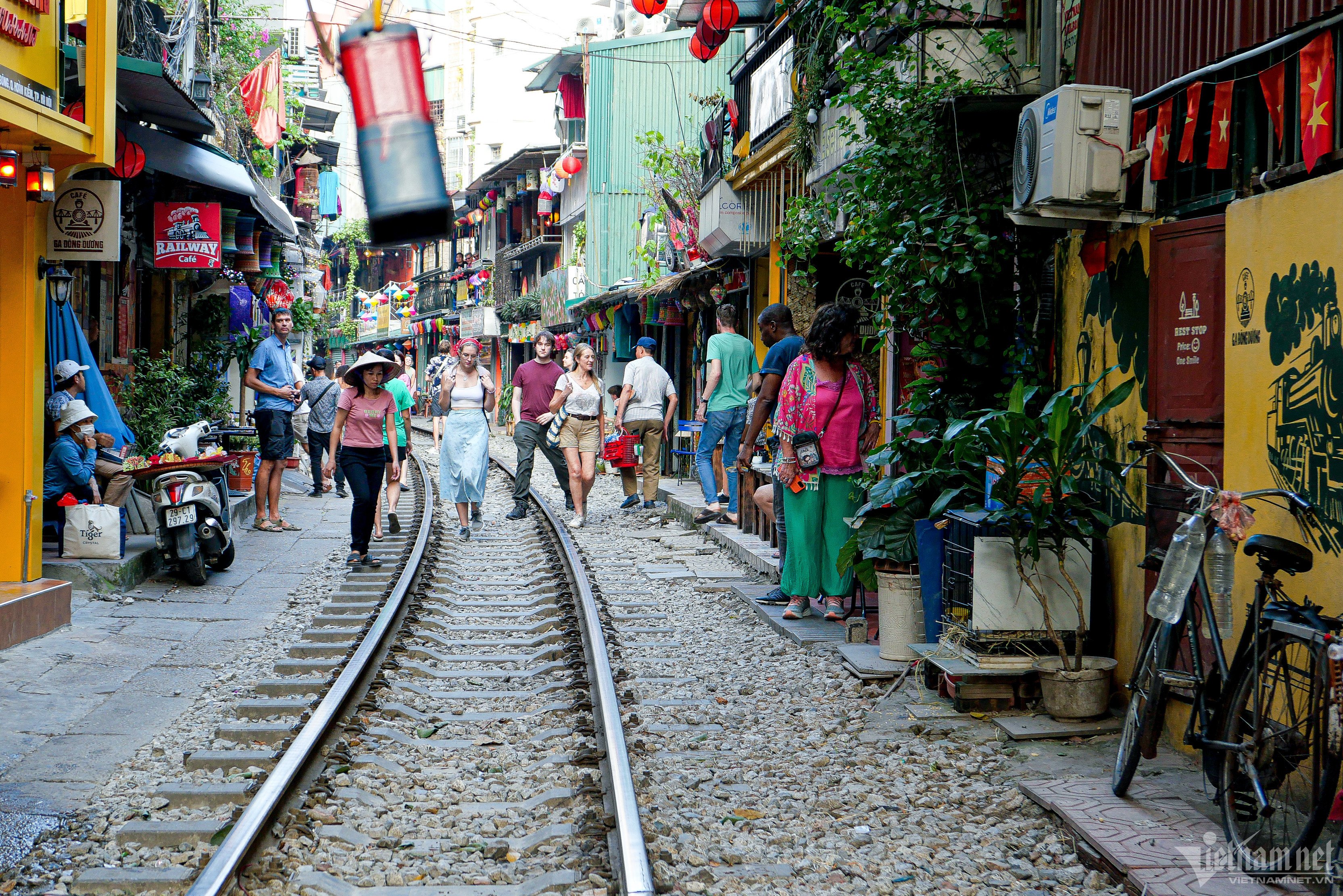
In response to this petition, the two districts of Ba Dinh and Hoan Kiem have erected barriers, posted warning signs prohibiting tourists from entering the area, and assigned security forces and militia to guard the area. However, after many times of local intervention, this check-in point still attracts tourists, especially international visitors.
As soon as the security forces are negligent, the coffee traders immediately lead customers inside. In September and November 2023, Dien Bien Ward Police issued a decision to fine 7 cases with a total amount of 2.8 million VND. These are households that had previously signed a commitment not to violate.
Should it be banned or regulated?
Faced with this situation, many opinions say that only by moving the railway out of the inner city or clearing all houses within the safety zone of the railway corridor according to regulations can this situation be completely resolved.
Dien Bien Ward Police also recommended that the Department of Tourism issue a notice advising foreign tourists not to visit and take photos here. However, in reality, in Hanoi tour brochures or according to tour guides, the train street cafe is always a check-in point that is recommended as “not to be missed”.
Talking to VietNamNet reporter about this issue, Dr. Nguyen Huu Duc - a traffic expert said that the railway has become too familiar to Hanoi people. But it has become one of the favorite check-in spots for international tourists. This has both advantages and disadvantages. In terms of benefits, this is considered a "specialty", a check-in spot that cannot be missed when coming to the capital. But on the downside, it also poses a potential risk to traffic safety.
“We need to consider the balance. If we ban it completely, I think it will be possible, but it will clearly lose the attractiveness of the capital. But if we let it develop freely like it is now, we will face the risk of insecurity.
So, why not organize it and let it happen spontaneously, leading to a situation where one section is banned and then another is banned. Banned at this time, but then bustling again later?
Obviously society has a need, so how should we think about how to provide it? I think that the ban is not effective. In my opinion, the best way now, instead of banning, is for the authorities to reorganize this activity and not let it be spontaneous like it is now," Mr. Duc suggested.
Experts recommend systematic management of the railway coffee “street” with clear regulations for both vendors and tourists. Coffee shops must ensure conditions regarding distance, setting up safety fences; passengers are only allowed to come at certain times… At the same time, security forces must be arranged with the task of warning when the train is approaching.
“The railway can absolutely send someone to look after that place. Instead of letting people collect money from tourists, the railway does this (sells tickets, ticket prices are publicly listed); tourists can only check-in at certain times, and there is a safe path.
We should not leave it to the local authorities to manage and especially should not let people do business spontaneously because if there is supply, there will be demand. We cannot use the mindset that if we cannot manage, we should ban it," Mr. Duc expressed.
Source



![[Photo] "Beauties" participate in the parade rehearsal at Bien Hoa airport](https://vstatic.vietnam.vn/vietnam/resource/IMAGE/2025/4/11/155502af3384431e918de0e2e585d13a)




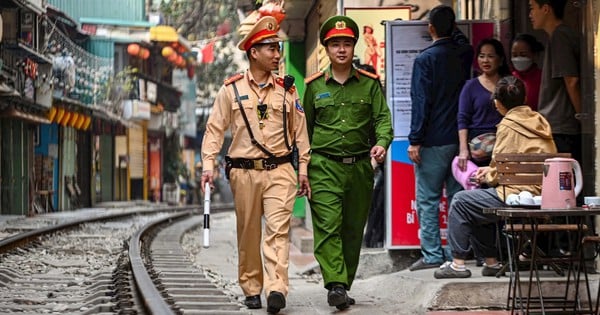

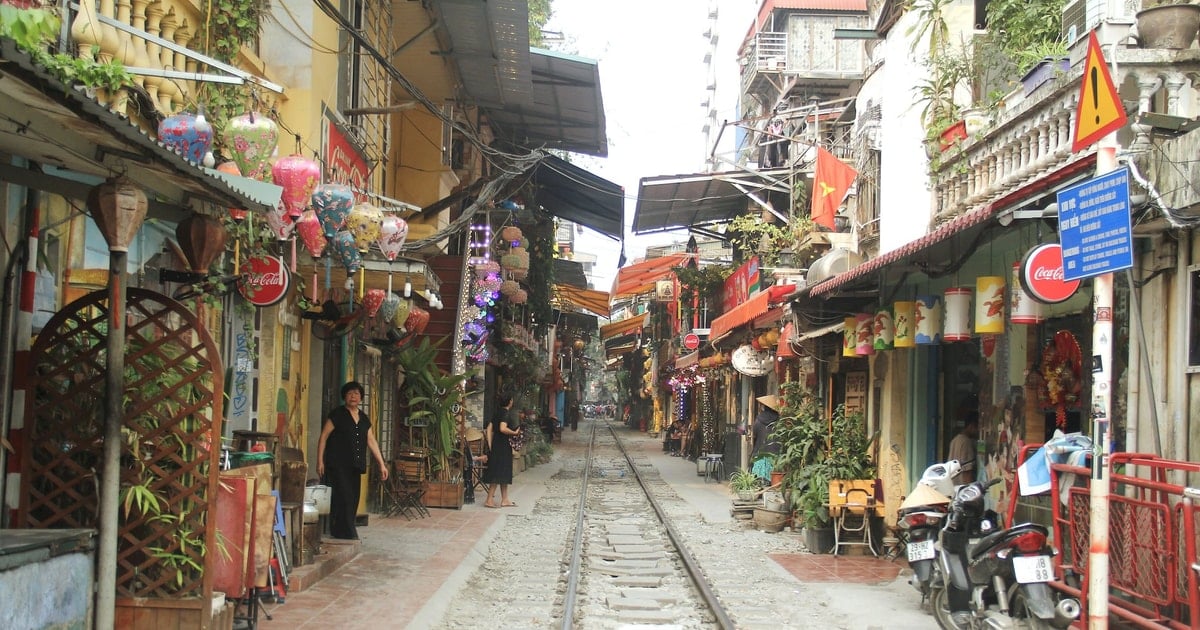

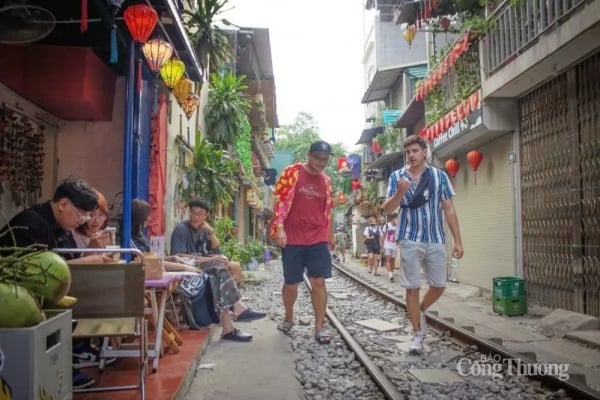





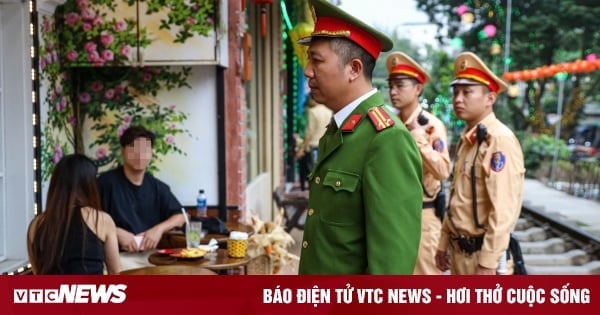

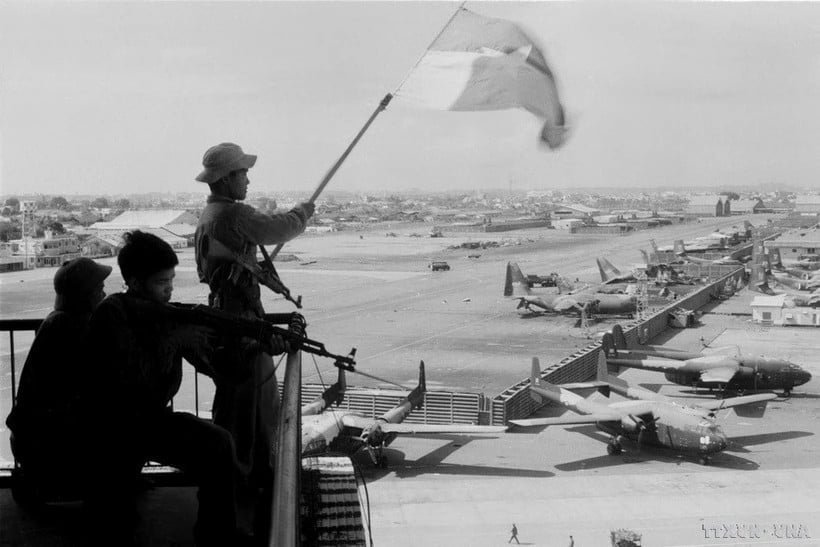

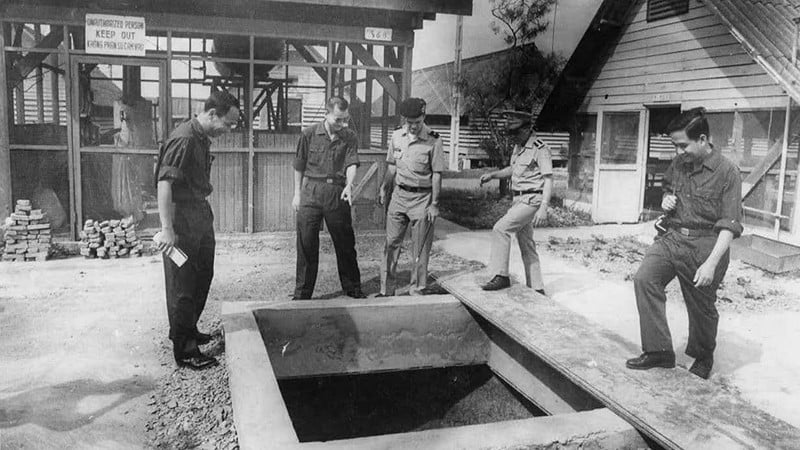
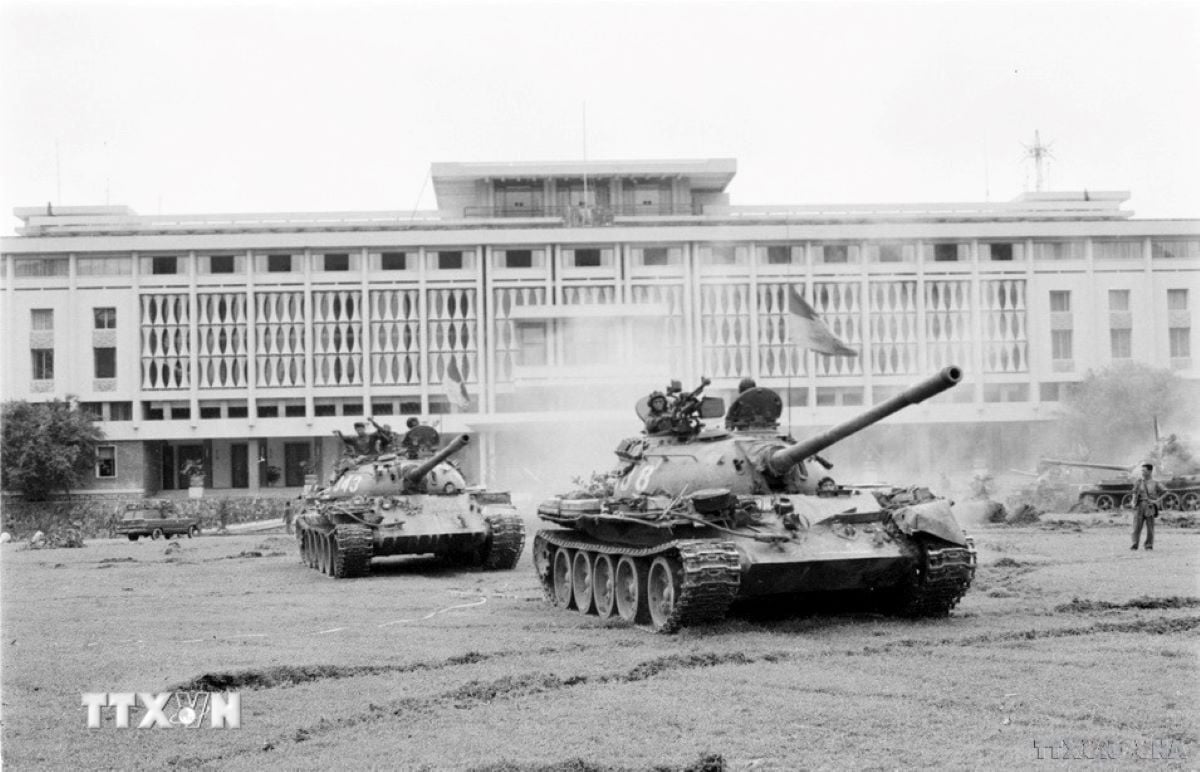
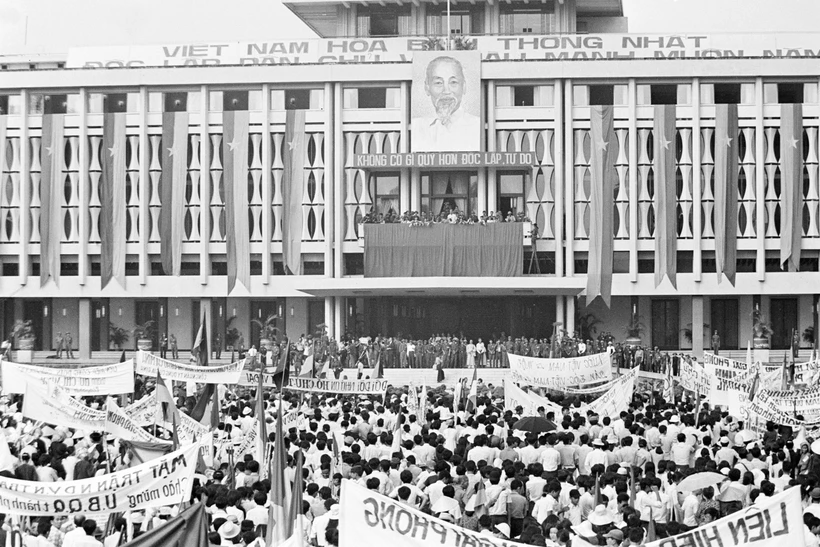



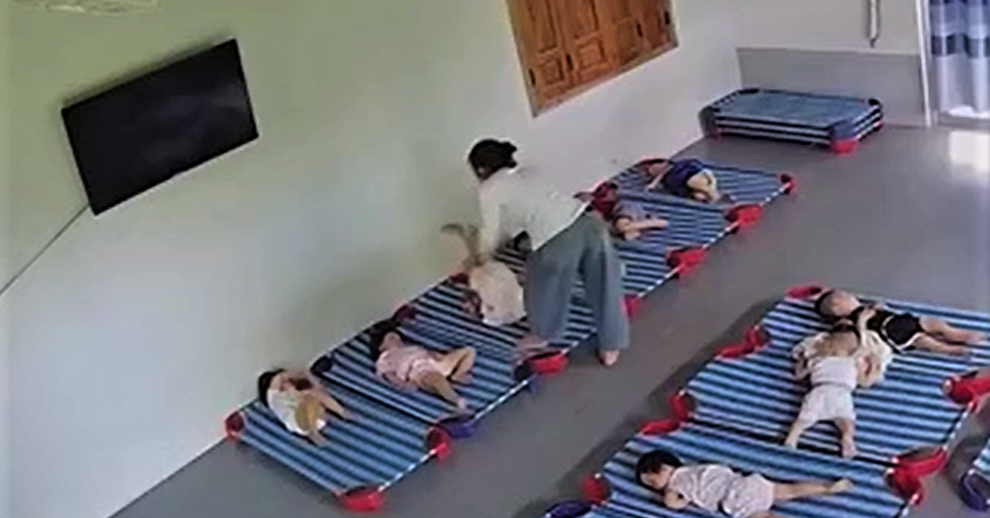
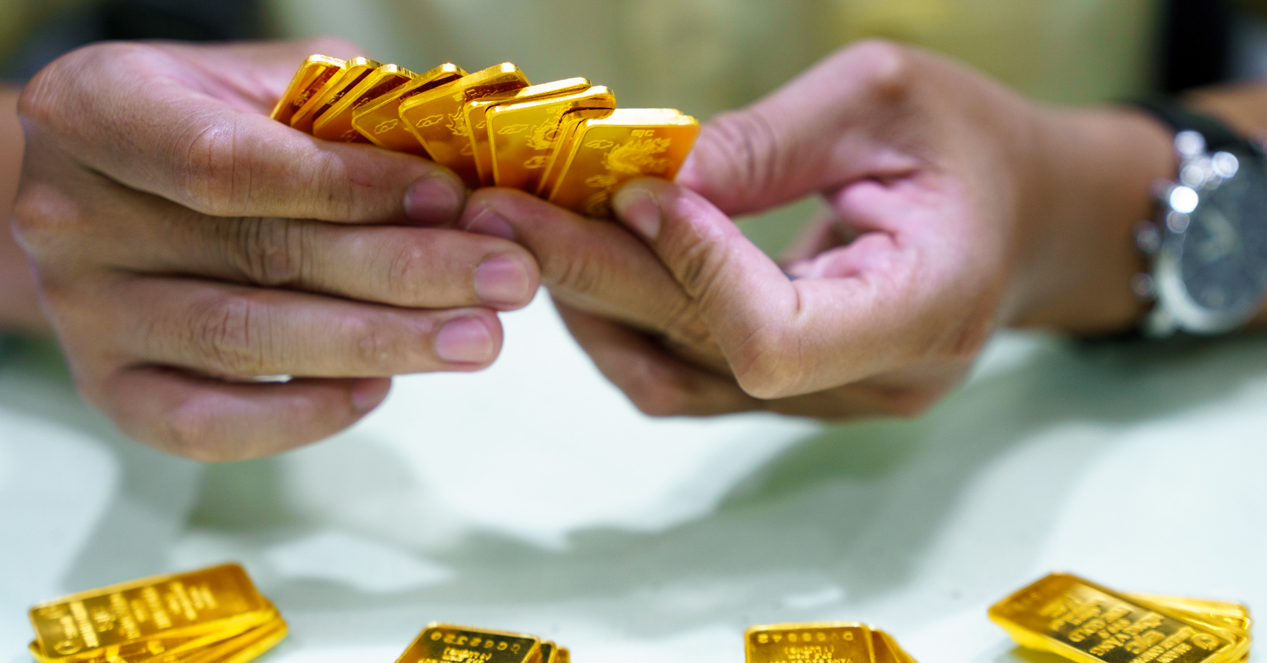





































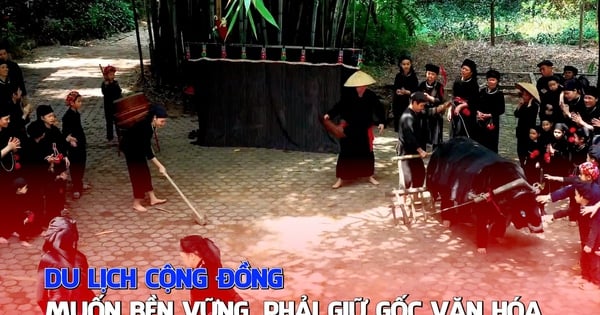










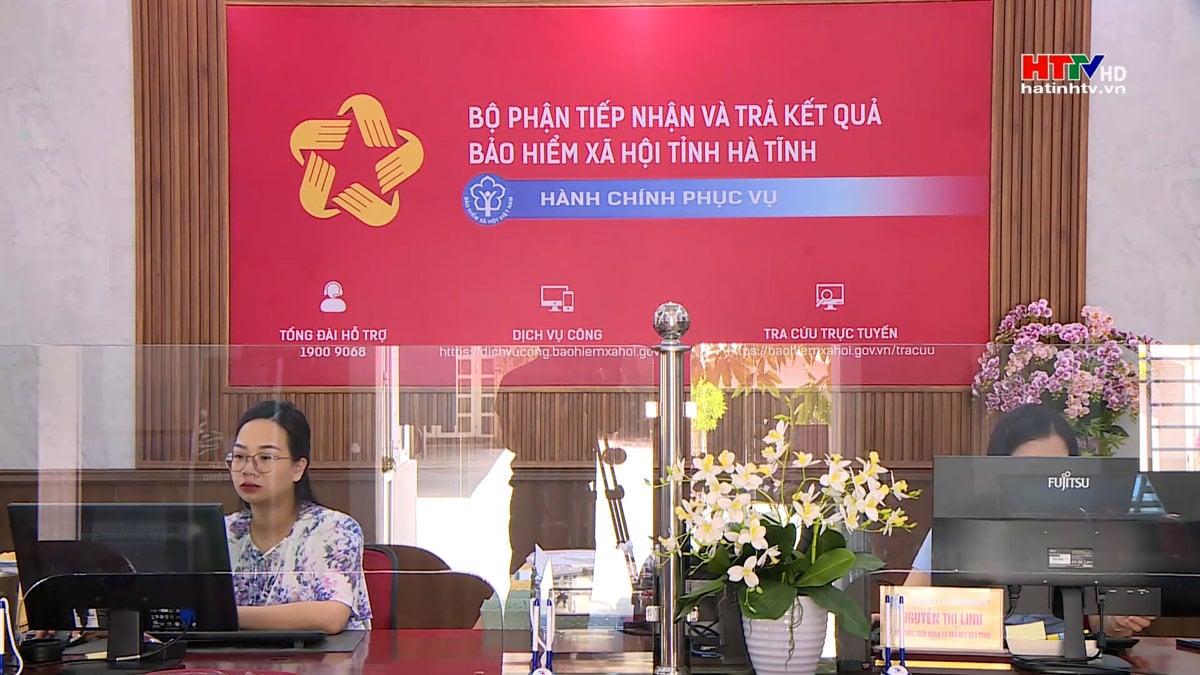
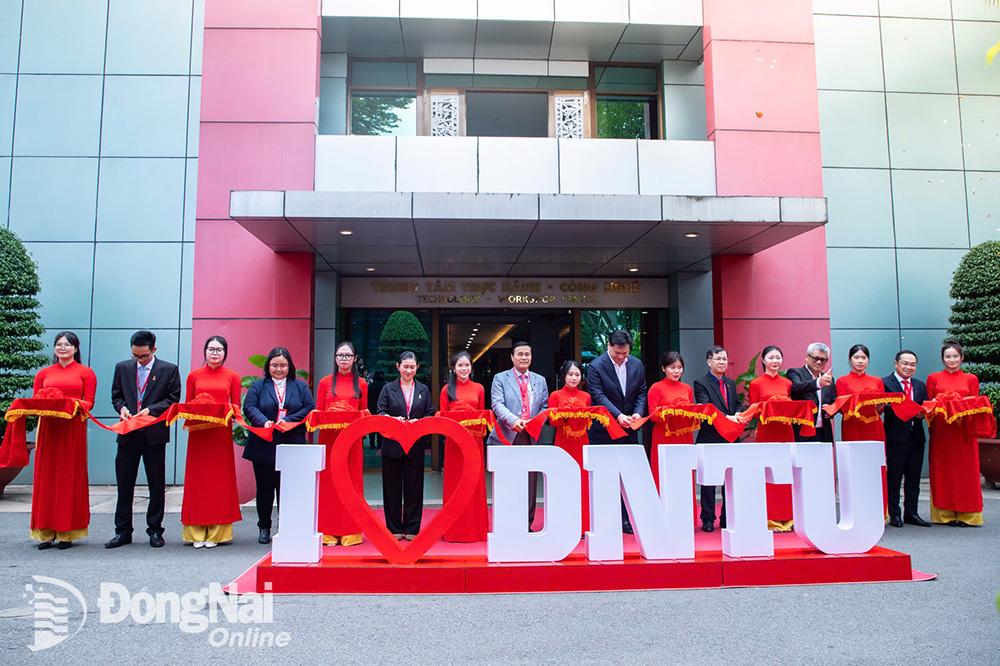

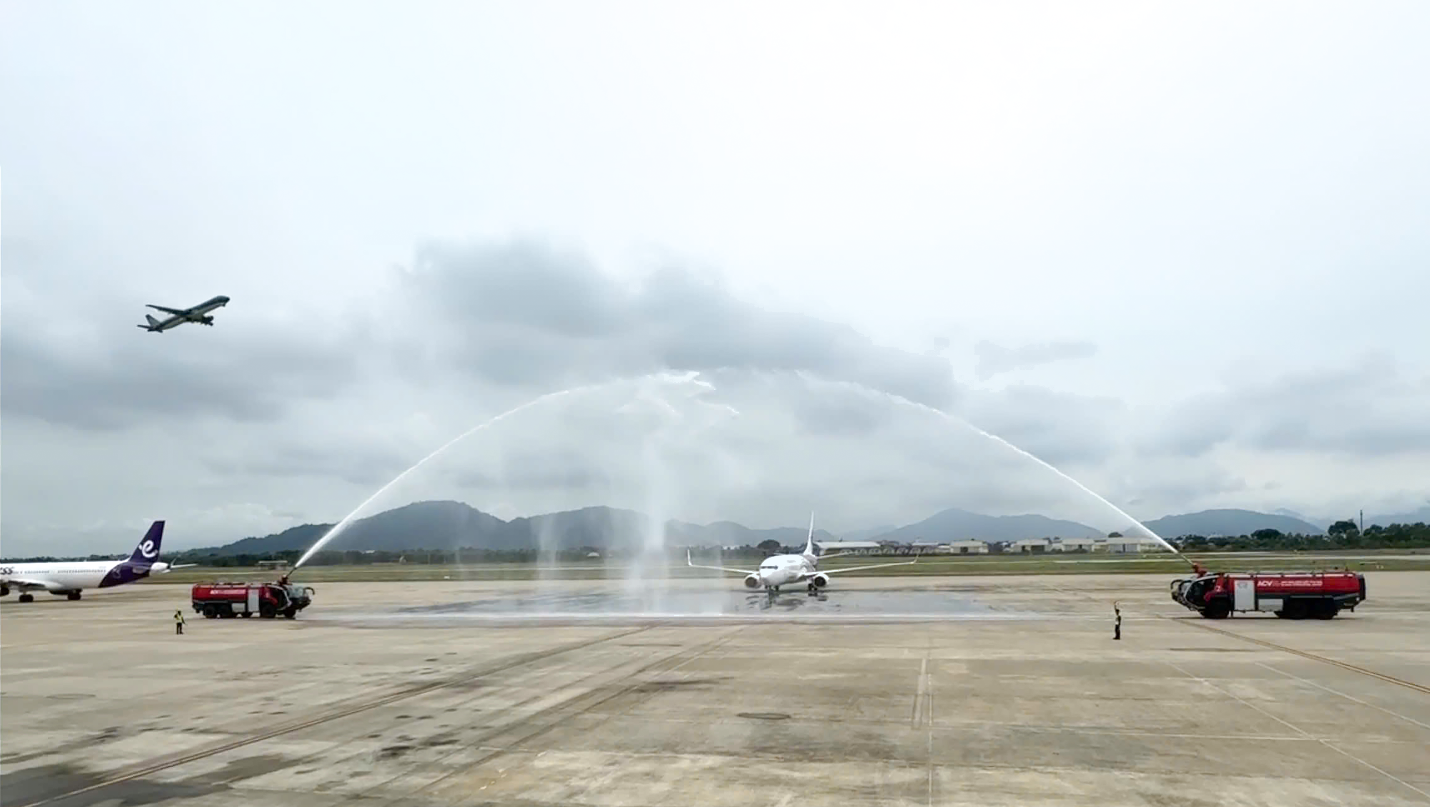
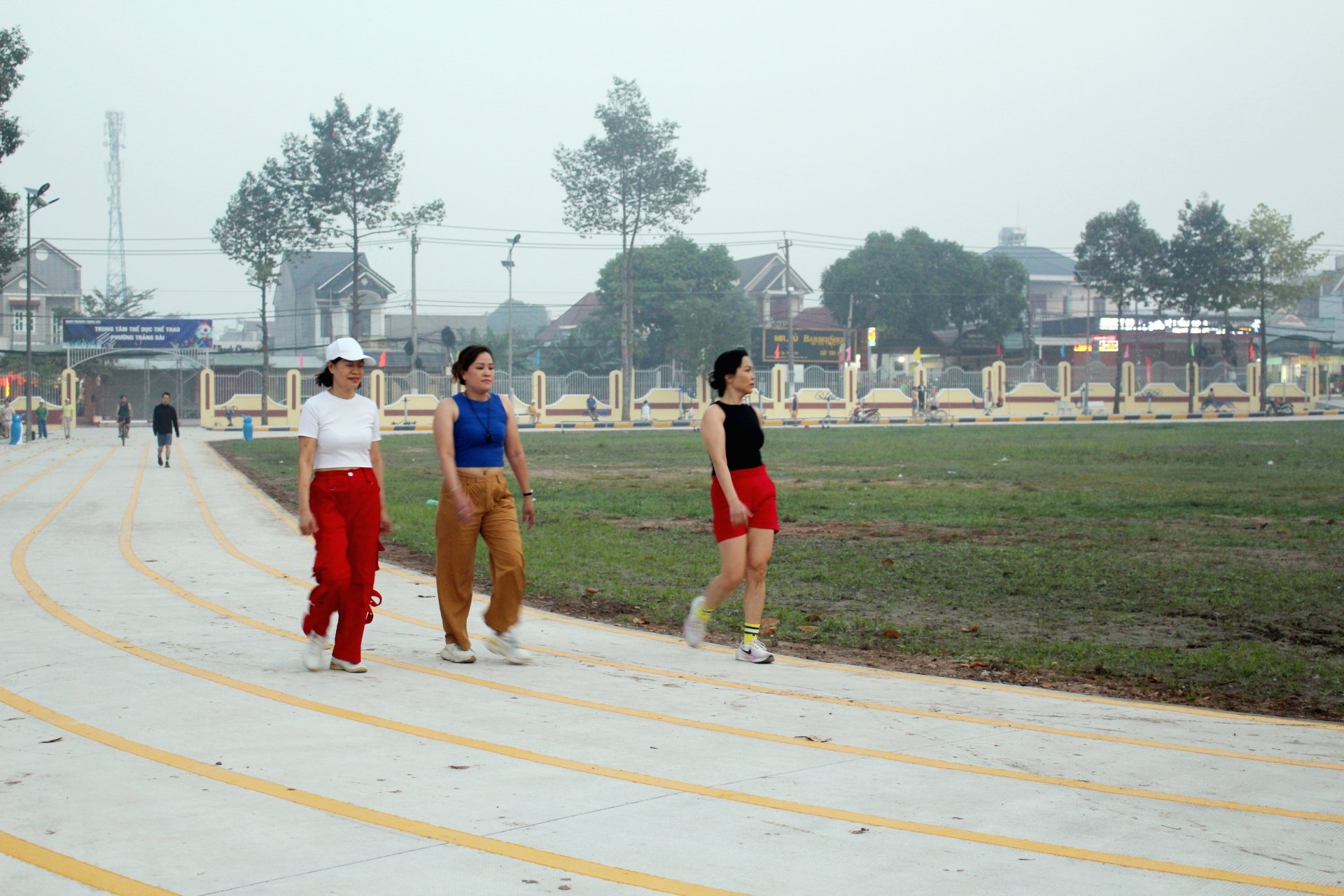










Comment (0)